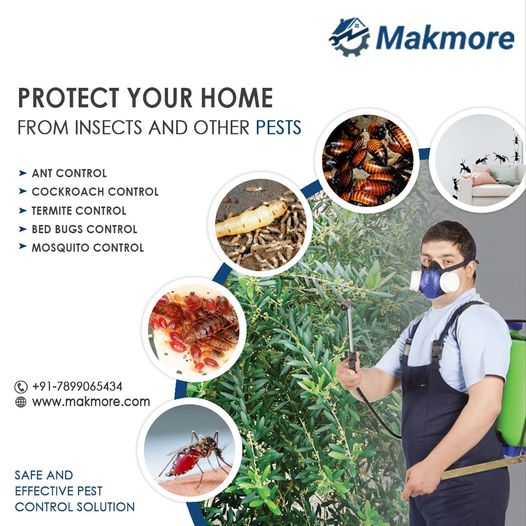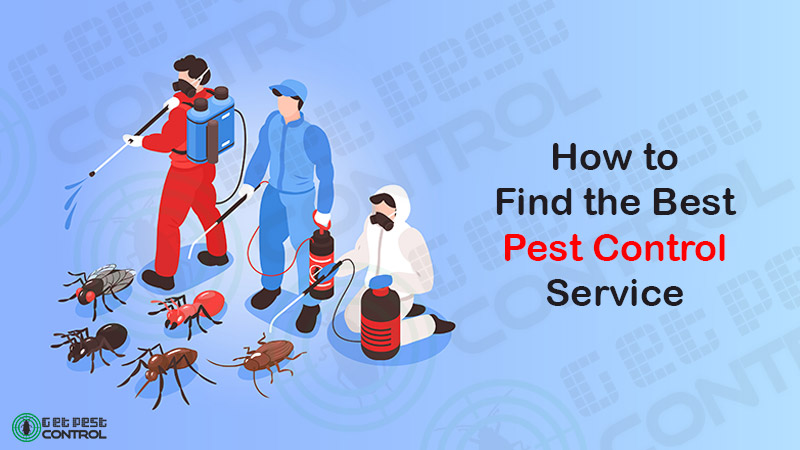Pest Control Auckland Specialists: Quality Services for Homes and Businesses
Wiki Article
Recognizing Various Types of Insect Control Techniques and Their Effectiveness
The management of pests is a critical facet of preserving the health and integrity of numerous settings, from farming areas to property homes. When considering pest control approaches, it is necessary to comprehend the diverse approaches available and their differing levels of effectiveness. From chemical interventions to biological services, each technique presents one-of-a-kind advantages and limitations. By discovering the subtleties of these insect control techniques, an extensive understanding of how to address pest problems can be developed.Chemical Insect Control Approaches
Chemical insect control techniques play a pivotal function in effectively managing and getting rid of pest infestations in different settings. These methods include making use of chemical substances to get rid of or hinder insects such as rodents, bugs, and weeds. One of the crucial benefits of chemical parasite control is its ability to offer fast and targeted solutions to pest issues. By making use of specific chemicals that are made to target certain pests, this method can assist protect against damage to crops, structures, and human health and wellness.Nevertheless, it is essential to think about the prospective dangers and disadvantages related to chemical parasite control approaches. Overreliance on chemicals can cause the advancement of pesticide resistance in pests, making them harder to regulate over time. Additionally, the usage of specific chemicals can have damaging impacts on non-target organisms, the setting, and human wellness otherwise applied correctly.

Biological Pest Control Methods
Making use of all-natural predators and virus to handle parasite populations properly, biological parasite control approaches use a green and sustainable technique to pest management. By promoting the task or introducing of microorganisms that normally take advantage of or contaminate insects, such as ladybugs for aphid control or specific microorganisms for caterpillar invasions, organic control can help preserve parasite populations at workable degrees without the requirement for artificial chemicals. This method is especially useful for organic farming practices, as it stays clear of making use of potentially dangerous substances while maintaining crop wellness.
Physical Pest Control Approaches
While biological insect control techniques concentrate on taking advantage of all-natural killers and pathogens, physical bug control techniques make use of physical and mechanical obstacles to handle insect populations. These methods are frequently considered environmentally friendly as they lessen using chemicals. Physical pest control includes techniques such as capturing, utilizing barriers like displays or internet, and literally eliminating insects from the location.Catches are frequently used in physical pest control to record and eliminate parasites like rodents and insects. One more physical method is the use of barriers such as fences, displays, or webs to avoid bugs from getting in or infesting particular locations.
All-natural Insect Control Approaches
Integrating plant-based repellents and natural predators is an essential method in executing reliable natural bug control techniques. By motivating the existence of valuable pests like ladybugs, lacewings, or predative termites, garden enthusiasts can normally regulate pest populations. These killers prey on usual garden bugs such as caterpillars, termites, and aphids, assisting to preserve a balanced community without the demand for chemical interventions.
In addition, applying social methods such as plant turning, friend growing, and maintaining proper plant health can additionally improve the efficiency of natural bug control techniques. These strategies not only aid in avoiding insect problems yet likewise advertise biodiversity and total community resilience. By integrating these natural strategies, individuals can efficiently take care of pests while minimizing ecological impact.
Integrated Parasite Management (IPM) Technique
Implementing an Integrated Parasite Administration (IPM) strategy is important for successfully controlling insect populations while lessening reliance on chemical pesticides. IPM is a sustainable and detailed approach that incorporates numerous parasite control techniques to achieve lasting remedies. This approach concentrates on tracking, control, and avoidance to resolve parasite issues in an eco-friendly way.IPM incorporates organic, social, physical, and mechanical methods with Going Here the critical and minimal usage of chemicals when essential. By stressing aggressive actions such as environment alteration, organic control, and exemption, IPM intends to minimize bug populaces and their influence on the ecological community. Normal surveillance is essential in IPM to assess bug degrees accurately and establish the most proper control methods.
One of the crucial advantages of IPM is click site its capability to decrease the risks related to excessive pesticide usage, such as environmental contamination and damage to non-target microorganisms. Additionally, IPM advertises an extra holistic strategy to pest administration by thinking about the overall ecological community dynamics. Overall, the IPM method supplies a effective and lasting remedy for bug control while promoting ecological duty.
Verdict
Finally, understanding the different kinds of bug control methods and their performance is vital in efficiently managing bug invasions. Chemical, organic, physical, and all-natural bug control approaches each have their very own benefits and limitations. Integrated Pest Management (IPM) method, which integrates various techniques for lasting insect control, is significantly being identified as a all natural and eco-friendly remedy. By making use of a mix of these individuals, organizations and approaches can efficiently manage parasites while reducing damage to the environment.Chemical pest control methods play a crucial role in successfully managing visit and eradicating pest invasions in various settings.Utilizing all-natural killers and virus to take care of bug populaces efficiently, organic parasite control techniques offer a sustainable and environment-friendly technique to pest management. By advertising the activity or introducing of microorganisms that normally prey on or contaminate parasites, such as ladybugs for aphid control or particular germs for caterpillar infestations, organic control can help preserve parasite populations at manageable levels without the demand for synthetic chemicals.While organic pest control methods focus on utilizing all-natural killers and pathogens, physical parasite control techniques use mechanical and physical obstacles to handle insect populaces. Integrated Bug Management (IPM) strategy, which integrates various approaches for lasting pest control, is increasingly being identified as a holistic and environmentally friendly remedy.
Report this wiki page